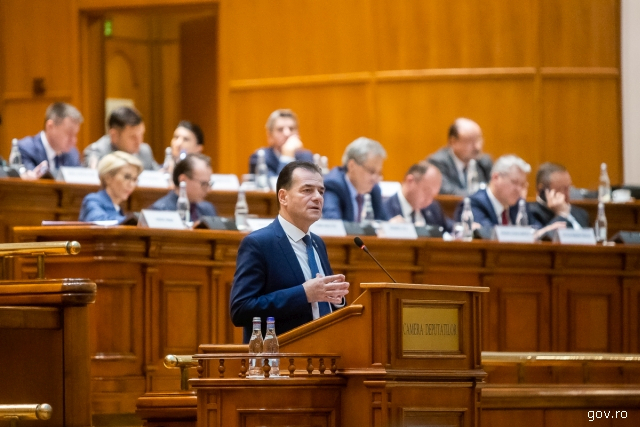Targets and Challenges in Early 2020
The 2019 elections have rearranged the EU legislative body, with center right and center left blocs losing ground to smaller parties

Corina Cristea, 03.01.2020, 14:37
The 2019 elections have rearranged the EU legislative body, with center right and center left blocs losing ground to smaller parties, including from the extreme right, but also to greens. Europe begins 2020 with a completely new leadership, but one that is equally determined to find the best solutions to benefit European citizens. The first test of the new parliament was electing a new European Commission, a difficult task, as the procedure to appoint the head of the executive has been contested. In the end, the successful candidate was a the first woman to be appointed in that position, former German Minister of Defense Ursula von der Leyden. Also as a first, in negotiating the appointments, criteria included gender equality, geography, and political identity. The newly stated priorities of the new head of the Commission, who took over from Jean-Claude Junker on December 1, are the environment, climate change, economic growth, inclusion, innovation and the digital world, as well as protecting democracy, European values, civic rights, and the rule of law. Donald Tusk’s successor, former Belgian prime minister Charles Michel, said that the EU has to live up to its role as an international player. The catch is that it will be an international player who loses a major member and contributor to the budget, the United Kingdom. Brexit, initially scheduled for March 2019, was postponed twice, but appears a sure fire thing after the newly elected parliament in London voted to pass the withdrawal agreement. Here is foreign policy analyst Andrei Tarnea:
“We are entering a stage when Brexit is a sure thing, January 31st is the moment when the UK exits the EU, by agreement passed by the British Parliament. This is the beginning of a long period filled with uncertainties as to the relations between the UK and the EU, perforce partners in culture and history, also traditions, but who now have to find the legal language to codify their relationship in the long term, be it economic or social, given the unavoidable ties. The UK is the biggest contributor to the EU’s military’s budget. Without the UK, the Union is a much lesser player in terms of security and defense for the continent. This will be a major issue in future negotiations, because the Brexit does not change the nature of the interests tying Great Britain to the rest of the continent, nor does it change the nature of threats that affect both the UK and EU. However, it changes the way in which cooperation moves forward, including from a legal point of view.
Romania, a member of both NATO and the EU, will have a major election year, with both local elections, in early summer, and parliament elections in November, unless early elections are held, something that the entire political class is calling for. The Liberal government led by Ludovic Orban took over from the Social Democratic cabinet led by Viorica Dancila through a censure motion signed by representatives of all political leanings. They want to change the law so that mayors are elected in two ballot rounds, an initiative that may result in its dismissal. The idea is that if they push the initiative by emergency executive order, they risk a political crisis that may result in early parliament elections in spring. For the time being, the government assumed responsibility for the state budget bill, as a first in Romanian politics, a law covering the social insurance bill and changes to Executive Order 114, introducing supplementary taxes for banks, as well as energy and telecom companies. This was the only solution for Romania to settle its 2020 budget by the end of 2019. This covers expenses and commitments made by previous political decisions, mostly regarding pensions and wages, which the present executive has committed to, so that coming up with a budget was mostly an exercise in keeping spending under control. This is what economic analyst Aurelian Dochia explains:
“Even this solution that sets a deficit ceiling at 3.58 is not very credible, because it is based on a series of very optimistic solutions. In my opinion, the economic growth figure of 4.1% for 2020 is beyond what most international forecasts say is realistic for Romania. I think that 2020 will be a year without major changes in taxation, but after the moment when a new government gains a popular mandate, it is very possible that this discussion start again, because medium and long term sustainability is in doubt.
Aurelian Dochia added that the level of inflation may turn out to be higher than that used to build the budget, considering that there is a lot of inflationary pressure likely to bring down the national currency.






























